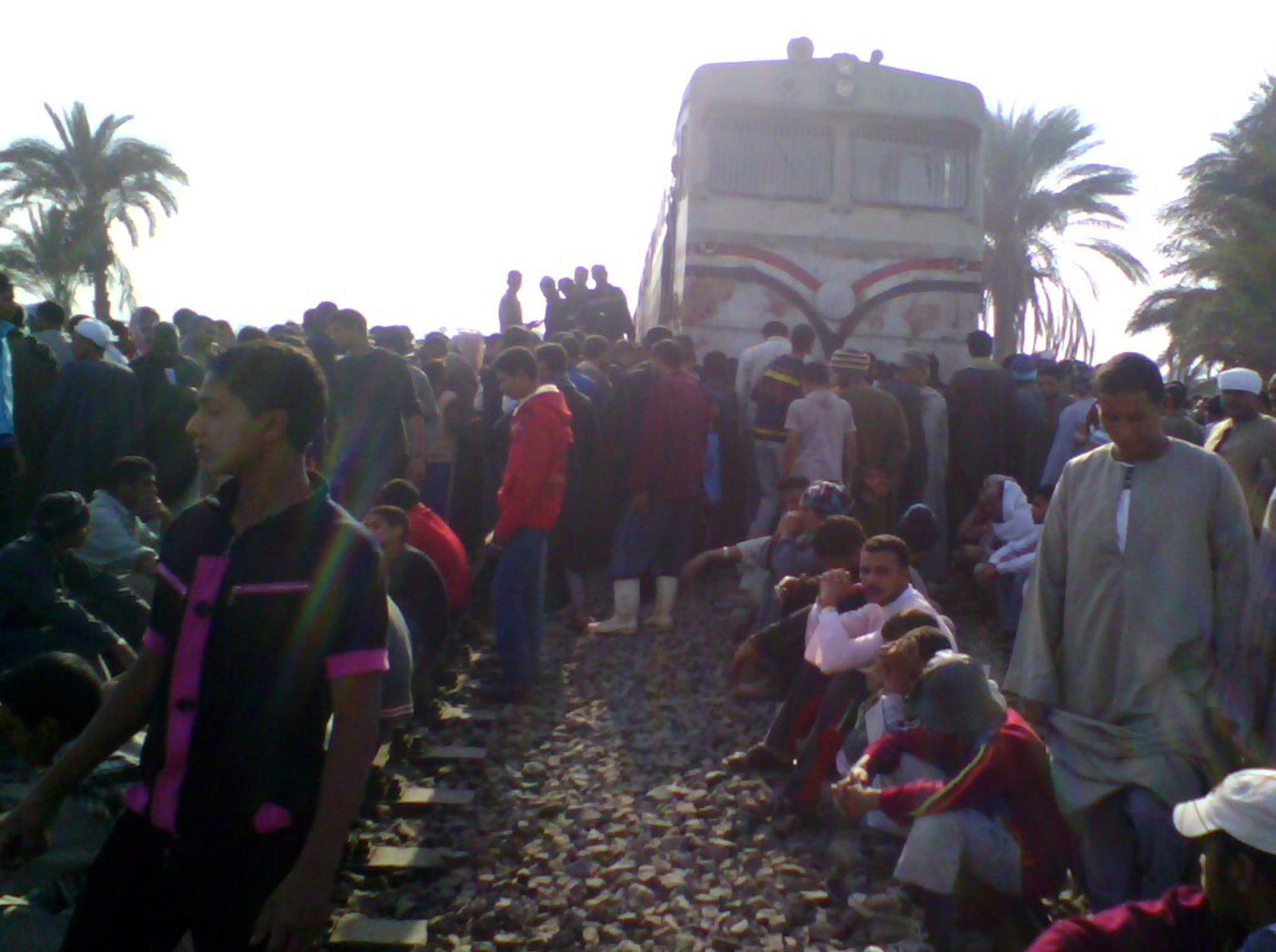Your support helps us to tell the story
From reproductive rights to climate change to Big Tech, The Independent is on the ground when the story is developing. Whether it's investigating the financials of Elon Musk's pro-Trump PAC or producing our latest documentary, 'The A Word', which shines a light on the American women fighting for reproductive rights, we know how important it is to parse out the facts from the messaging.
At such a critical moment in US history, we need reporters on the ground. Your donation allows us to keep sending journalists to speak to both sides of the story.
The Independent is trusted by Americans across the entire political spectrum. And unlike many other quality news outlets, we choose not to lock Americans out of our reporting and analysis with paywalls. We believe quality journalism should be available to everyone, paid for by those who can afford it.
Your support makes all the difference.Fifty people, almost all children, were killed when a train slammed into a school bus as it crossed tracks in a city south of Cairo yesterday. All but two of the dead were children, aged about four to eight, said a senior official in Assiut, near the site. One woman and the bus driver also died, he added.
The bus was broken in half by the force of the crash. Blood was spattered on the front of the engine and school bags and textbooks, some bloodstained, were strewn around. Witnesses said barriers at the rail crossing were open when the train hit the bus. The Transport minister, Mohamed Rashad, and the head of the railways authority resigned, and President Mohamed Morsi said those responsible would be held to account.
Egypt's roads and railways have a poor safety record and Egyptians have long complained that successive governments have failed to enforce even basic safeguards. State media reported that as well as the 50 dead, 15 or more people were injured. A medical source said as many as 28 were injured, 27 of them children.
"They told us the barriers were open when the bus crossed the tracks and the train collided with it," said Mohamed Samir, a doctor at Assiut hospital where the injured were taken. Assiut's governor, Yahya Keshk, also said the crossing was open. "The crossing worker was asleep. He has been detained," he told state television.
The doctor said the bodies of many of those killed were severely mutilated, illustrating the force of the crash, which took place in the city of Manfalut, near Assiut, about 190 miles south of the capital. "I saw the train collide with the bus and push it about half a mile along the track," said Ahmed Youssef, a driver. Officials said the level of destruction and mutilation made it difficult to count and identify the bodies. At the scene, a woman who called herself Um Ibrahim, a mother of three, was pulling her hair in distress. "My children! I didn't feed you before you left," she wailed.
President Morsi told his ministers to offer support to the families of those killed, the official news agency said. Prime Minister Hisham Kandil ordered investigations into anyone responsible for the crash and travelled to the scene, where victims' families were protesting. Officials sought to reassure them that the case would be investigated and they would receive help.
Earlier this month, at least three Egyptians were killed and more than 30 injured in a train crash in Fayoum, south of Cairo. In July, 15 people were injured in Giza, close to the capital, when a train derailed. Egypt's worst train disaster was in 2002 when a fire ripped through seven carriages of an overcrowded passenger train, killing at least 360 people.
Many more people have been killed in rail accidents since then despite pledges from successive governments to improve safety. Accidents involving multiple deaths are also common on Egypt's poor road network.

Join our commenting forum
Join thought-provoking conversations, follow other Independent readers and see their replies
Comments